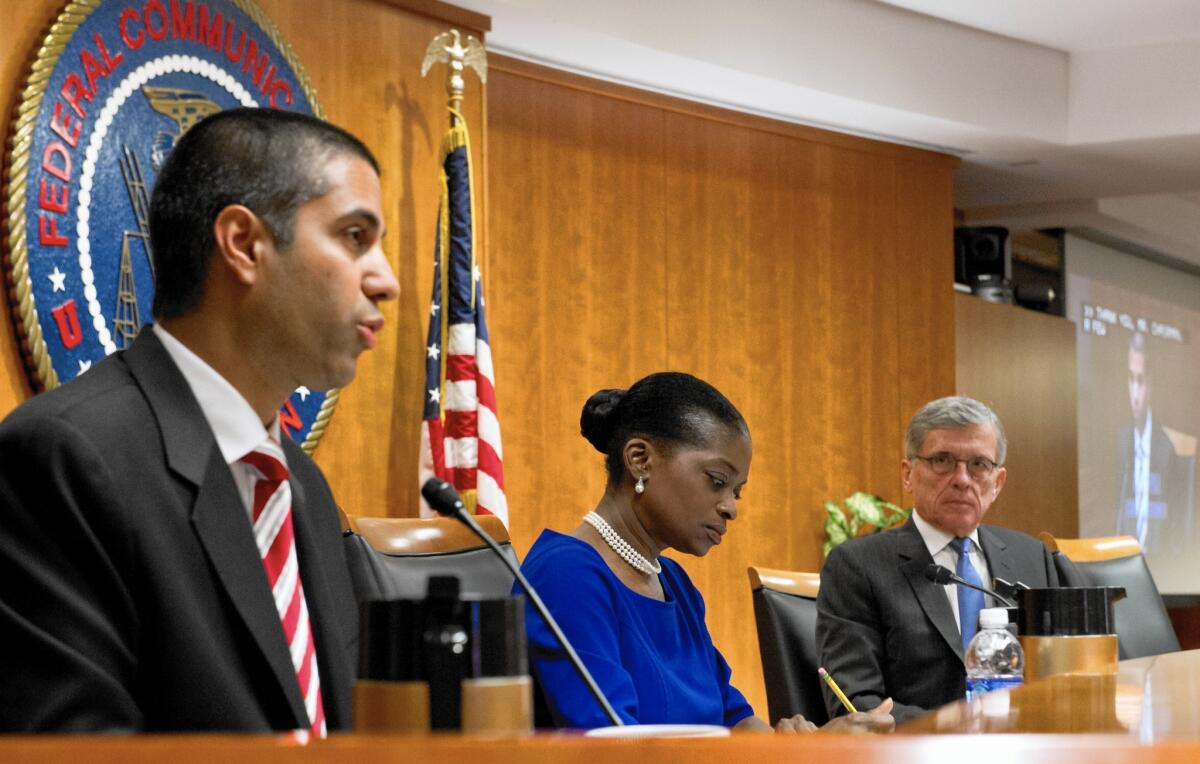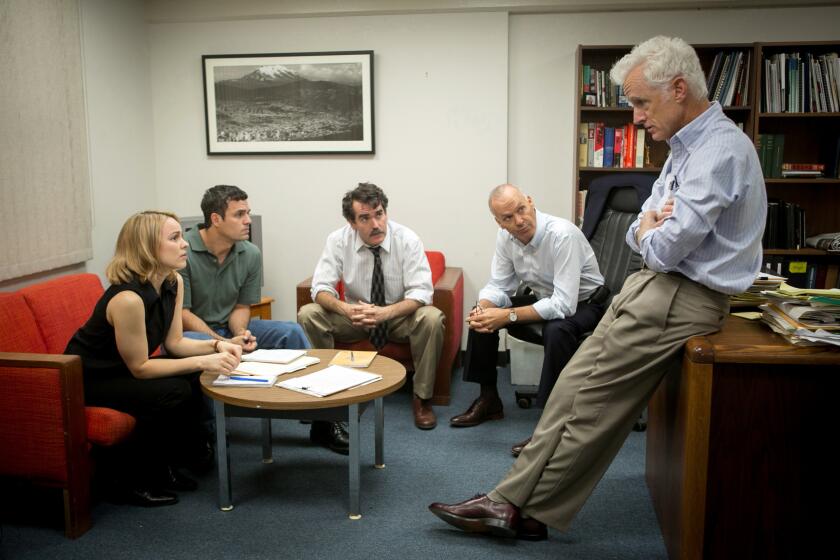Potential for a bipartisan bill on net neutrality emerges in Congress

Rick Boucher knows as well as anybody that net neutrality is the type of complex technology topic that Congress finds difficult to handle even when Democrats and Republicans are getting along.
But the former 14-term House member, a longtime player on Internet policy who now heads a telecommunications industry trade group, is optimistic that the controversial Internet issue could be a surprising source of compromise in a time of partisan gridlock.
“Each side can give the other the thing it wants the most,” Boucher, a well-respected Democrat who is honorary chairman of the Internet Innovation Alliance. “This is an optimal moment to legislate.”
Both political parties have a major reason to seek a permanent legislative solution after the Federal Communications Commission last month enacted tough new regulations for online traffic.
Leading Republicans want to limit the broad authority the FCC asserted to police broadband after classifying it as a more highly regulated utility-like service under Title 2 of the Communications Act.
And to do that, the GOP lawmakers reversed long-standing opposition to the need for net neutrality regulations and have proposed codifying the meat of the FCC’s order: prohibitions on Internet service providers from blocking, slowing or selling priority delivery of content to consumers.
Key Democrats said they’re willing to work on a bill that could limit the FCC’s powers because enshrining net neutrality regulations into law would avoid the fear that they could be overturned by federal judges — which happened twice before — or a future Republican-led FCC.
“Democrats would like to lock net neutrality into a litigation-proof statute. And Republicans really want to eliminate Title 2 [authority]. So that’s a good starting point,” said Paul Gallant, a telecommunications policy analyst with Guggenheim Securities in Washington.
Congressional hearings last week showed the potential for a bipartisan deal, as well as the passions of both sides, which might need to cool before serious negotiations could take place.
The Republican bill is sponsored by Senate Commerce Committee Chairman John Thune (R-S.D.) and House Energy and Commerce Committee Chairman Fred Upton (R-Mich.), two veteran lawmakers with the clout to get legislation approved.
It tries to appease net neutrality supporters by enshrining the FCC’s new prohibitions into law but appeals to the industry by eliminating the Title 2 classification for broadband, which would limit the agency’s ability to make new regulations.
The top Democrat on each of those panels reiterated publicly that they would consider a deal if the FCC retained more authority.
“I remain open to a truly bipartisan congressional action provided that such action fully protects consumers, does not undercut the FCC’s role and leaves the agency with flexible, forward-looking authority to respond to the changes in this dynamic broadband marketplace,” Sen. Bill Nelson (D-Fla.) said at a congressional hearing last week.
Fellow Senate Democrats Joe Manchin of West Virginia and Brian Schatz of Hawaii also said they were open to legislation.
Two leading industry trade groups — the National Cable & Telecommunications Assn. and CTIA-The Wireless Assn. — have expressed enthusiasm for the Republican net neutrality bill.
Industry executives have said they would prefer a legislative solution, even though they warned that a legal challenge is coming that could leave the FCC’s regulations in limbo for years. On Monday, the U.S. Telecom Assn. trade group and a small Texas firm, Alamo Broadband Inc., each sued the FCC in separate U.S. District Courts.
“Our hope really is ultimately the uncertainty will create a legislative solution that would be, I think, a nice outcome and an appropriate outcome given all the constituencies that are involved,” Michael J. Angelakis, chief financial officer at Comcast Corp., told an investor conference this month.
Boucher began pushing for net neutrality legislation in 2006 along with other Democrats, including then Sen. Barack Obama. But their efforts were stymied by strong opposition from the telecom industry and Republicans, who said regulations were not needed because there were no widespread abuses.
Boucher now works as a telecom industry lawyer and at the Internet Innovation Alliance, which includes AT&T Inc. and other firms opposed to the FCC’s rules. He said Republican willingness to enact net neutrality restrictions is a “major victory” for Democrats, one that would avoid the uncertainty of a legal challenge.
To get a deal, Republicans would need to compromise more by allowing the FCC to have continued authority over broadband, though less than what comes with Title 2 oversight, he said.
But many Democrats, including Obama, as well as public interest groups, pushed the FCC to classify broadband for tougher oversight under Title 2, so giving that up would be difficult.
“There’s still a big gap between what the FCC did and what Republicans are proposing,” said Chris Lewis, vice president for government affairs at digital rights group Public Knowledge. “They’re proposing some bright line rules but they’re also proposing to limit the FCC’s authority to adjust broadband protections as technology changes.”
Boucher said Democrats needed to step back from the victory of the FCC vote and realize the rules could be tied up in court for three years or more.
“It’s a very tenuous foundation on which these net neutrality regulations rest, and I think Democrats need to get a fuller sense of that before there will be a fuller participation in a bipartisan process,” he said.
Some Republicans don’t want to compromise on the issue at all.
Rep. Marsha Blackburn (R-Tenn.) has proposed legislation that would block the FCC’s regulations and prohibit the agency from issuing new ones. The bill has 43 Republican co-sponsors.
After listening to FCC Chairman Tom Wheeler, a Democrat, and Republican member Ajit Pai spar over net neutrality during the hearings last week, some lawmakers wondered whether a compromise could be reached.
“If you can’t come together, how in the world do you expect us to work together?” Manchin asked. Nelson suggested the controversy needed to die down a bit.
Gallant agreed.
“Both sides are still in full battle mode coming out of the FCC vote and these hearings,” he said. “As time passes, I think both sides will see there’s a win-win if it’s approached the right way.”







